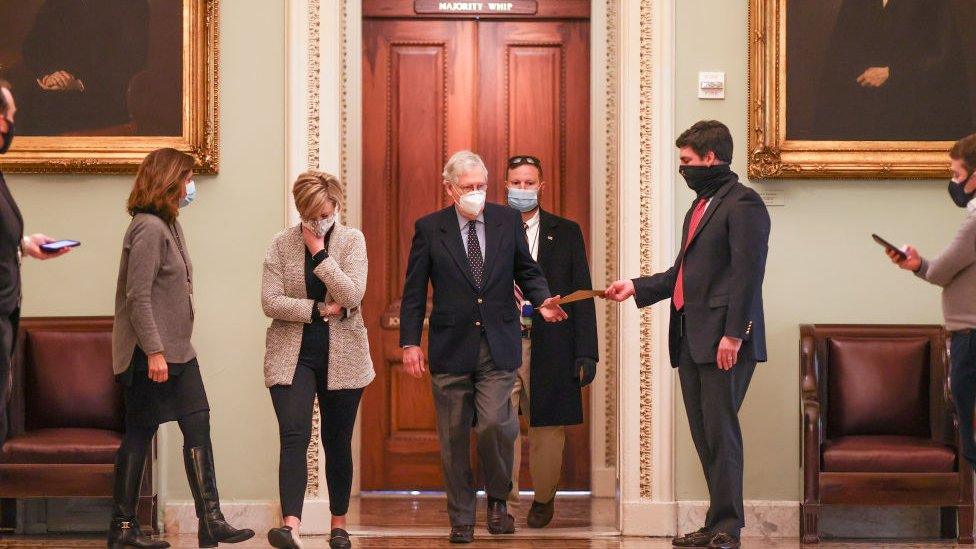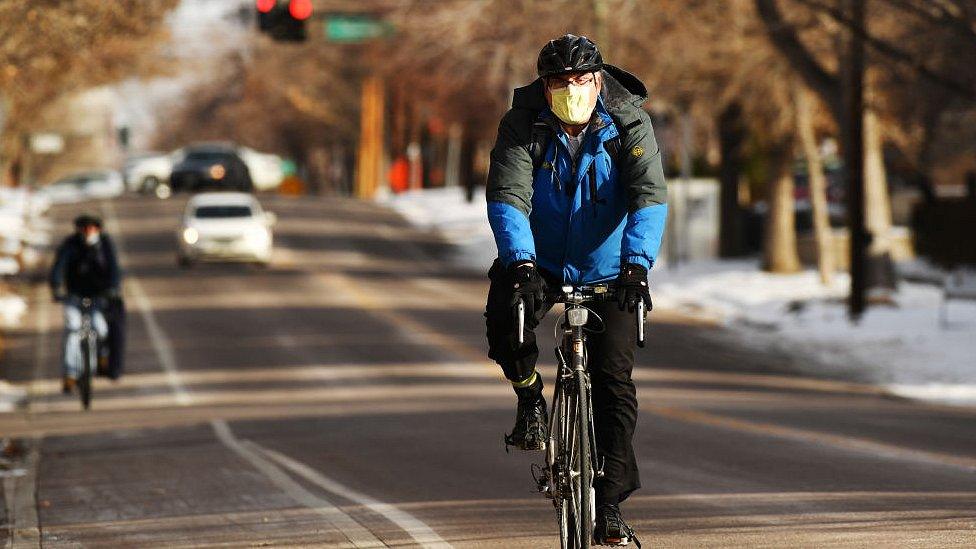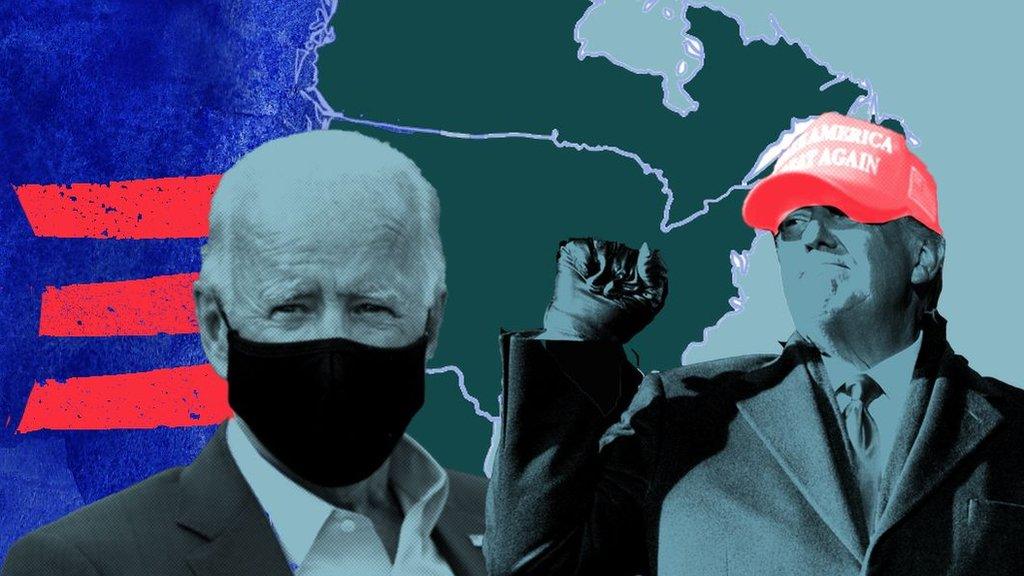Trump's call for $2,000 cheques blocked by Senate leader
- Published

Mitch McConnell (C) heading for the Senate floor on Tuesday
US Senate Republican leader Mitch McConnell has rejected calls from an unlikely alliance of President Donald Trump, congressional Democrats and some Republicans to boost coronavirus aid.
The House of Representatives, held by the Democrats, had voted to increase aid cheques to Americans to $2,000.
Dozens of House Republicans, reluctant to defy Mr Trump, backed the increase.
But Mr McConnell's objections mean there will not be a direct vote on a revised Covid aid bill in the Senate.
Mitch McConnell said raising aid cheques would be "another fire hose of borrowed money".
The move could in effect kill off Mr Trump's demands for bigger cash handouts to help the economy recover, correspondents say.
Congress had initially agreed to the smaller $600 (£440) payments in a Covid relief and government funding bill.
Mr Trump sent that back to Capitol Hill before Christmas, saying the stimulus payment should be higher.
He eventually, and grudgingly, signed the original bill with the lower payments into law on Sunday, but has continued to demand more money.
On Monday, House Democrats - usually sworn political foes of Mr Trump - passed the measure for $2,000 cheques that he requested.
"Unless Republicans have a death wish, and it is also the right thing to do, they must approve the $2,000 payments ASAP," the president tweeted on Tuesday.
The total number of people who have died with Covid in the US stands at nearly 350,000. There are concerns that the figure could continue to surge following Christmas and New Year gatherings.
California meanwhile became the second state to confirm a case of the new strain of the virus, considered to be highly contagious. The first case was confirmed in Colorado.
Why did McConnell object to the higher payments?
The Kentucky senator rejected Democrats' calls for the upper chamber to vote on the $2,000 cheques package passed by their counterparts in the House.
He said the bill had "no realistic path to quickly pass the Senate".
Speaking in the chamber on Wednesday, he said: "The Senate is not going to be bullied into rushing out more borrowed money into the hands of Democrats' rich friends who don't need the help."
Instead he offered to roll the proposal for bigger cheques into another bill to include other measures that have been requested by Mr Trump but raised objections from Democratic leaders.
One would end legal protection for tech companies, known as Section 230. The other would set up a bipartisan commission to investigate Mr Trump's unsubstantiated claims of systemic electoral fraud.
Democrats said Mr McConnell's proposal was merely a legislative poison pill designed to kill higher stimulus payments.
How did Democrats react?
Liberal Vermont Senator Bernie Sanders, an independent who votes with Democrats, said on the Senate floor: "All we are asking for is a vote. What is the problem?
"If you want to vote against $2,000 checks for your state, vote against it."
Senate Democratic leader Chuck Schumer said: "What we're seeing right now is leader McConnell trying to kill the cheques - the $2,000 cheques desperately needed by so many American families."
And House Speaker Nancy Pelosi said: "These Republicans in the Senate seem to have an endless tolerance for other people's sadness."
What about other Republicans?
The party usually professes an opposition to government spending as an article of faith, but some of its top conservative senators have rallied behind Mr Trump's call for $2,000 cheques.
They include Marco Rubio of Florida and Josh Hawley of Missouri, both considered possible presidential contenders in 2024.
So have Georgia's Republican senators, David Perdue and Kelly Loeffler, who are fighting for their political lives in a 5 January election against two Democratic challengers. The vote will decide which party controls the Senate next year.
“No end in sight”: One day inside a rural North Dakota hospital's Covid fight
But other Republicans have argued the relief bill already provides a wider safety net once its jobless benefits, rental assistance and loans to small businesses to keep workers on their payroll are taken into account.
Senator Pat Toomey of Pennsylvania said he opposed "blindly borrowing" billions of dollars to send cheques to "millions of people who haven't lost any income".
Related topics
- Published30 December 2020

- Published27 December 2020
